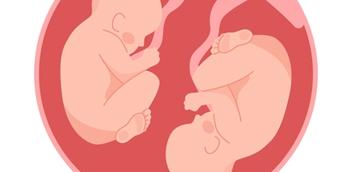
Doctors, NPs Equally Effective in Helping Patients Lose Weight
Health care professionals can play a big role in helping overweight patients lose weight and maintain weight loss, starting with acknowledging their overweight status in the first place, according to two studies published in the Feb. 28 issue of the Archives of Internal Medicine.
TUESDAY, March 1 (HealthDay News) -- Health care professionals can play a big role in helping overweight patients lose weight and maintain weight loss, starting with acknowledging their overweight status in the first place, according to two studies published in the Feb. 28 issue of the Archives of Internal Medicine.
Nancy C.W. ter Bogt, of the University Medical Center Groningen in the Netherlands, and colleagues randomized 457 patients with a body mass index (BMI) of 25 to 40 kg/m² to lifestyle counseling by nurse practitioners or usual care by general practitioners. At three years, about 60 percent of participants in both groups achieved weight maintenance, but there was no significant difference between the two groups in weight change and change of waist circumference.
Robert E. Post, M.D., of the Medical University of South Carolina in Charleston, and colleagues analyzed data on adults with a BMI of at least 25 kg/m² to determine the impact of physician acknowledgment of patient overweight status on patient self-perception of their weight and desire to lose weight. They found only 45.2 percent of patients with a BMI of at least 25 kg/m² and 66.4 percent of those with a BMI of at least 30 kg/m² were told by a physician that they were overweight. Those whose physicians did discuss their weight status with them, however, were more likely to perceive themselves as overweight and to endeavor to lose weight.
"Among patients who were overweight or obese, patient reports of being told by a physician that they were overweight were associated with more realistic perceptions of the patients' own weight, desire to lose weight, and recent attempts to lose weight," Post and colleagues conclude.
Related Content
Newsletter
Get the latest clinical updates, case studies, and expert commentary in obstetric and gynecologic care. Sign up now to stay informed.









